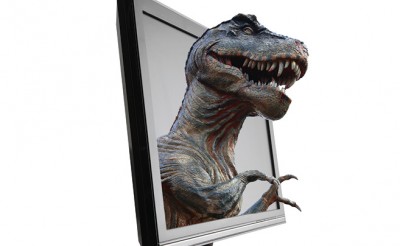The digital marketing era

The traditional marketing industry model has been disrupted and it is irretrievably broken. It’s time to move on. The days of crafting a brand message on the back of a TV commercial with an elephantine budget are over.
No one cares anymore about your lavish TVC that has won numerous awards. What they care about is real-time engagement via social media and brand messaging that is totally relevant to their needs. Marketing is no longer about shovelling shiny things down a pipeline into the mouths of distant and passive consumers. It’s about moving
at the speed of culture, being part of the conversation, and always staying relevant to your target market. This is digital marketing.
Digital disruption has reconfigured entire industries
This massive disruption has hit the traditional marketing model right between the eyes. It is stunned and about to hit the canvas for the ten-count: the knockout punch has been delivered. In this regard the marketing industry is no different to media, retail, transport or any of the other major sectors of the economy that have been drastically reconfigured and re-imagined because of digital disruption.
Marketing and advertising consultant Michael Farmer has been in the business since the early 70s and in his latest book, Madison Avenue Manslaughter, he lays out the ways in which the old marketing/advertising model has been decimated by digital, in much the same way as has happened to Kodak, Sony, the taxi industry, department stores and traditional media outlets.
Writing for AdAge, he says the old model legacy for big agencies is too burdensome to be turned around — they are dinosaurs watching their own impending extinction: "The ‘agency of record’ concept is just about dead, and so are the retainers that funded them."
As Farmer says: "Don’t expect non-digital agencies to invest in digital capabilities — the risks are too great."
PepsiCo president Brad Jakeman bluntly assessed the challenges facing marketers when he spoke at last year’s Masters of Marketing conference in
the US.
There is no such thing as digital marketing
"We are still talking about the thirty-second TV spot. Seriously?" Jakeman told the audience of marketing and advertising professionals, as reported by AdAge. "There is no such thing as digital marketing," he said. "There is marketing — most of which happens to be digital."
Jakeman emphasised the need to get away from the idea of digital silos and start integrating digital at the core of an organisation’s marketing DNA: "We ‘ghettoise’ digital as though it’s the life raft tethered to the big ocean liner. And we have to move on from that."
The task for CEOs and executive teams is to navigate their way around the sinking ocean liner of the traditional agency model and create cultures in tune with the new digital reality. This can seem daunting to clients in some circumstances, especially if the organisation has relied heavily upon a traditional agency to map its strategy. However, the benefits soon become evident.
Translated to the realm of marketing, it means markets can be better identified and methods of communication with those audiences can be established with deeper levels of engagement and trust.
Companies adapting to a digital world are 26% more profitable
According to MIT Sloan research, companies adapting to a digital world are 26% more profitable than their industry peers. This is because when digital thinking becomes the normal operating mode for companies, new efficiencies and means of productivity are identified and quickly instituted.
Translated to the realm of marketing, it means markets can be better identified and methods of communication with those audiences can be established with deeper levels of engagement and trust than what the old pipeline broadcast model could deliver. The wealth of data available now means every marketing message should be hitting a clearly discernible audience with minimal wastage.
It means this audience will be interacting and engaging via Facebook, LinkedIn, Twitter, Snapchat, et al with your message, wanting to know more about what your organisation can do for them. In effect, it’s about turning consumers into brand advocates.
CEOs can guide their marketing departments and implement a strategy to take advantage of this new model of marketing engagement and advocacy by:
- hiring people who think digital
- making data-based decisions
- committing to becoming a digital organisation at a board and executive level.
In an age of digital disruption, leaders who understand the power of the new paradigm will lead their organisations to success. Those who don’t do these things will stand on the sidelines watching their own extinction unfold.